Move over, stereotypes. This Black motorcycle rider is more than a 'unicorn.'
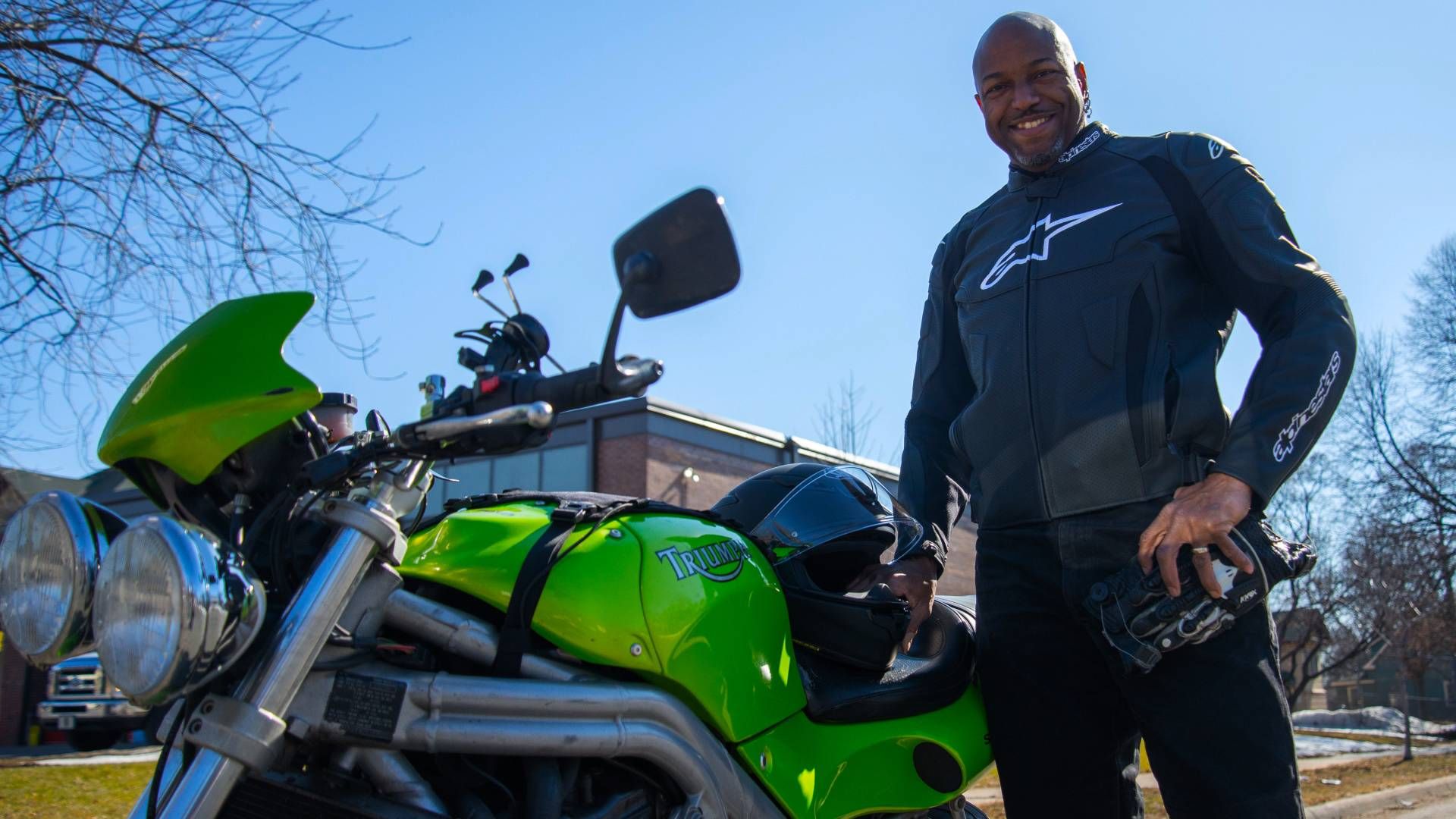
Merely mention the word motorcycle and your mind likely fills with images of of leather-clad, long-haired and burly bikers tearing down the desert highways of the Southwest or weaving through the oceanside traffic on the Pacific coast. Classic films like The Wild Bunch and Easy Rider established this as the default imagery decades ago, while contemporary shows like Renegade and Sons of Anarchy continue to reinforce these broad generalities. After all, America is a country that revels in symbolism. Our images are icons. The apocryphal becomes accepted as fact. But as is the case with all stereotypical depictions, this is a woefully inaccurate and incomplete picture.
Case in point, Vincent Hopwood, creator of the 2 Wheels 4 Seasons travelogue site.
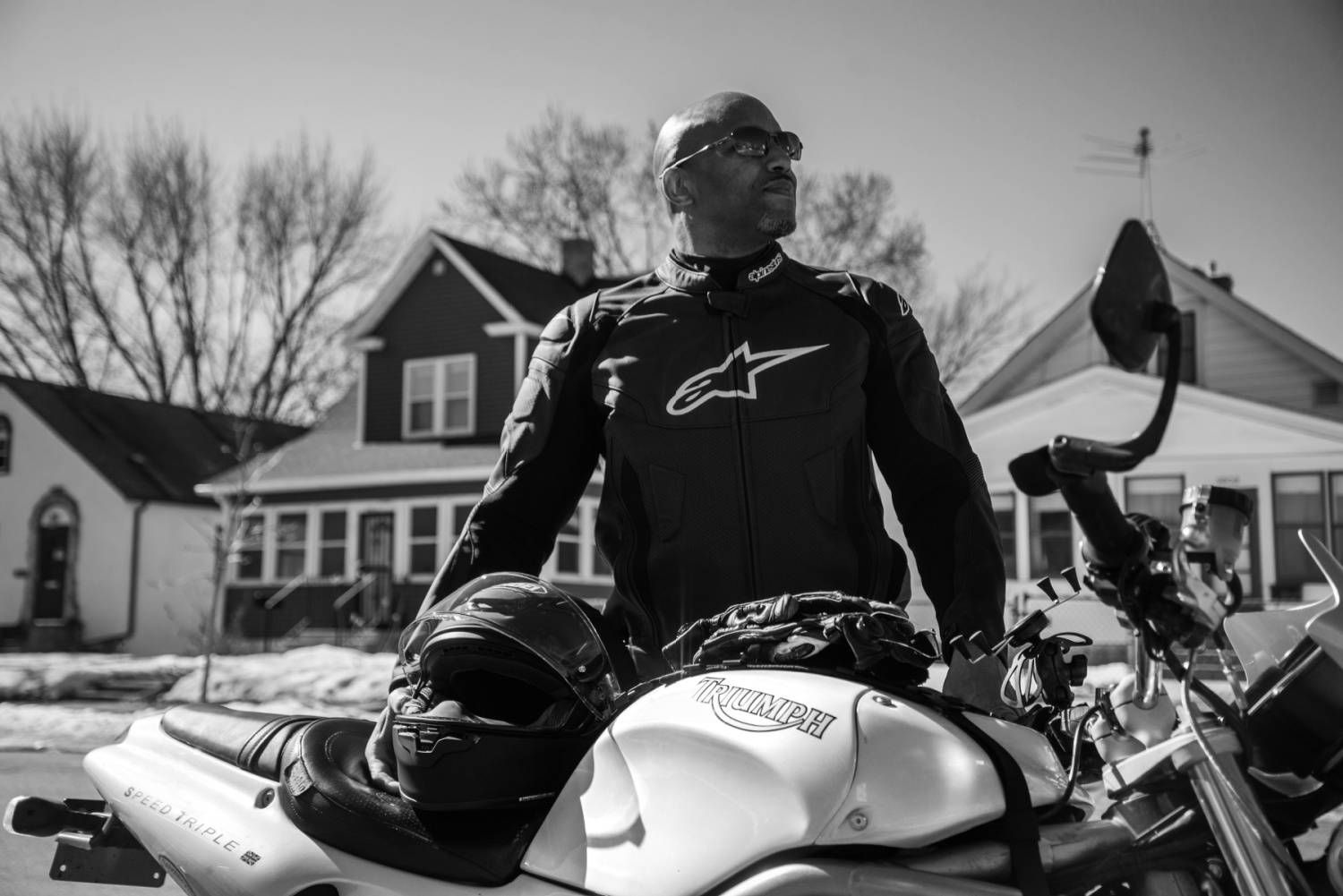
I first became acquainted with Vincent a few years ago. As is increasingly common nowadays, we first met online. Through discussions on shared interest platforms like Twin Cities Geek and A Civilized Heresy, we got to know each other and built a strong rapport over our shared predilections for digital discourse. For many, myself included, forging a friendship via social media sites is hardly unique. But what makes Vincent stand out, is that he’s not only a Black motorcyclist, but also undeterred when the mercury drops in the Twin Cities and beyond.
There are BIPOC bikers all over the country, but the dominant image most people have...isn't that. What are some of the reactions you've received? Is there a difference between how other BIPOC bikers/people react than white bikers/people?
Vincent Hopwood: For the most part, bikers have been extremely welcoming everywhere I've gone. Whether it was a Bike Night at a local dealership, hardcore bikers at the Sturgis Motorcycle Rally, random riders on the road out in the Western U.S. or motorcyclists on the Isle of Man in town for a week of racing, as long as you ride, there is always common ground. No matter where you go, there are always stories about trips, opinions about various motorcycles or motorcycle gear, and shared experiences that bind riders together. I've found that these commonalities count for more than differences in culture, language or points of origin.
That said, I seem to surprise people wherever I go. In a state like Minnesota where there are so few people of color, once I'm out of Minneapolis proper, I turn into a unicorn - that rare, mythical African American on a motorcycle. You would think that would get really weird very quickly, but just the opposite has been true. Everywhere I go on a motorcycle, people ask questions or strike up conversations with me.
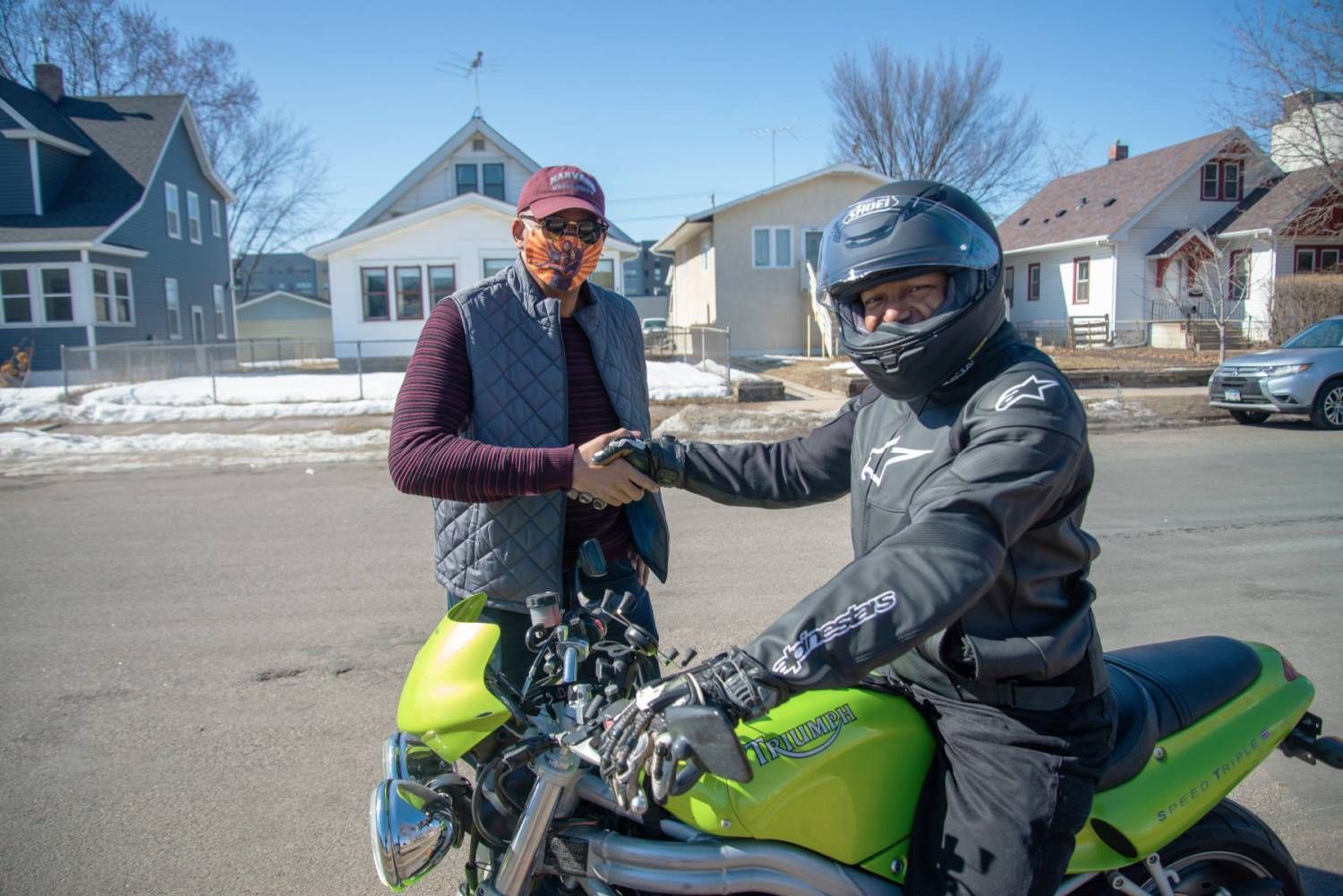
Just the other day, I rode out to pick up my tabs. The St. Louis Park location maintains some pretty strict COVID precautions, but that didn't stop the older White guy seated six feet away from commenting on my helmet and going on to talk about his auto racing hobby. We gabbed for 15 to 20 minutes before my number came up and I was called up to the DMV area...where the lady who helped me talked about her husband's recent retirement and how he lives to ride. We talked about bikes and roads and my motorcycling website the entire time she processed my tabs. And then, as I walked out of the building and across the parking lot back to my motorcycle, a guy who had just finished parking next to my bike walked past me. He was full of compliments about my bike and wished me a safe ride.
When I'm driving my Jeep, typically? No one says a word to me. On my bike? It's almost like being a celebrity. As far as my interactions with other BIPOC who ride, that element of wonder and surprise is completely lacking. I'm Black, they're Black. I ride, they ride.
That said, when I'm riding and I spot another BIPOC biker, the "nod" so common among African Americans takes on added weight. Rather than the simple "hey, Brother" of passing another African American on the street, it's more like "Well, alright! A Brother who rides. Good lookin' out."
Minnesota isn't what many people first imagine when they think of motorcycles, but really, most places aren't. You've ridden all over the country, in various cities and states, neighborhoods and communities, what makes riding in Minnesota - particularly the Twin Cities - unique?
What makes Minneapolis unique from a motorcycling perspective is the wealth of urban riding, as well as the close proximity of scenic highway riding. Many motorcyclists will say that the best riding is out in the countryside. Quite a few don't want to be forced to slow down for city speed limits, stop at traffic lights or fight through traffic. For many motorcyclists, the whole point is to escape the traffic congestion and noise of the city and get out to where you can be alone, just you and a ribbon of asphalt.
Most people are aware that the Twin Cities boasts the greatest park and recreation system in the country. What a lot of people don't realize is that this amazing park system includes some of the best, most extensive urban parkway systems available anywhere in the country. The Grand Rounds Scenic Byway - connecting the city's downtown riverfront to the Chain of Lakes through the Mississippi River and Minnehaha Creek parkways - features seven different segments totaling 52 miles of gorgeous, sedate riding. That's a whole day's worth riding, stopping off at little shops and eateries, and exploring historic markers and museums. And all of this within the Minneapolis city limits. The city of Saint Paul has urban rides like Como Avenue and Lake Como-Wheelock Parkway-Lake Phalen route, as well as the Summit Avenue-Shepard Road-Mississippi River Blvd. route
But riding enjoyment in this area isn't restricted to the city. Even though the Twin Cities represent the 14th largest urban area in the country, riders looking for highways to cruise don't have to go very far to find scenic, challenging, interesting and enjoyable riding, both to the west and to the east of the urban centers. Lake Minnetonka, just 30 minutes west of Minneapolis, represents an entire day or more of exploration. The various bays and inlets create a maze of roads to explore, with plenty of lakeside restaurants, shops, and brewpubs to visit at the end of the day. A day trip along the St. Croix River Valley, just 30 miles east of Saint Paul, offers some wonderful riding as well, with quaint little towns, such as Taylors Falls, Stillwater, Red Wing and Winona on the Minnesota side of the river along Highway 61, or Osceola, Hudson, Prescott and Pepin on the Wisconsin side along Highway 35 that you can stop off in and explore.
So obvious question - riding here with your complexion makes you stand out. And we have a pretty diverse population. Does biking culture supersedes notions of race?
You know, the idea of seeing Black people on the motorcycle and, you know, being kind of shocking. I think that's only the case for people who don't ride. When you ride and you get around, you see lots of different people. You know, I have friends, like my guy from Saint Paul who's Laotian, who's part of the culture. And you know, you just see all kinds of folks on motorcycles, whereas in popular culture, the only representation is big burly Harley dudes, and maybe the occasional sport bike guy dressed up as a Power Ranger.
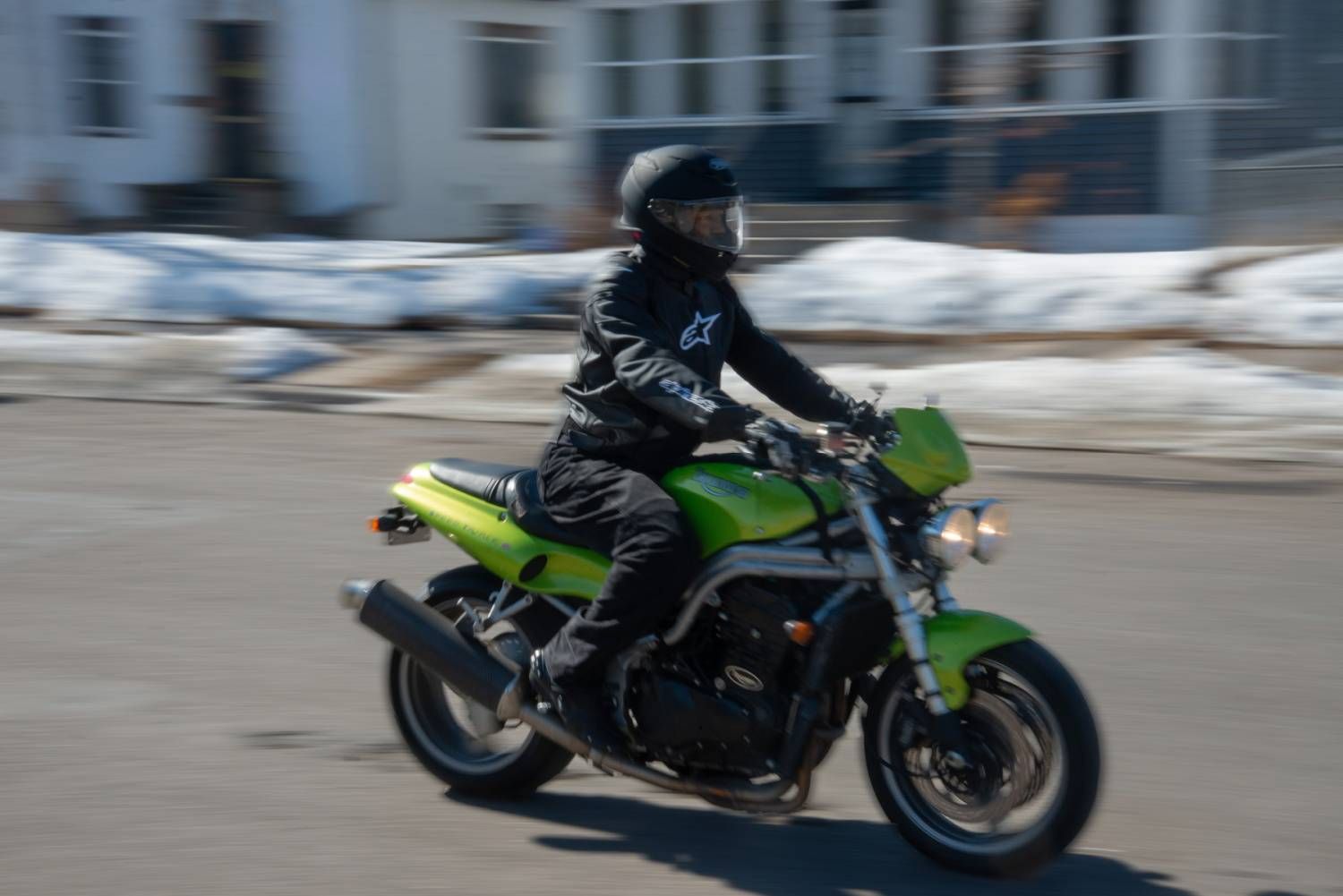
How do you choose your subculture? Let me explain: When I wanted to play music, I was attracted to certain musicians. So when I first started, I would emulate them. I wanted to play Fender guitars because Jimi Hendrix played Fender; I wanted to get big fat basses like Bootsy Collins and stuff like that. With biking, is it like, you see Easy Rider and you want a Harley, or you liked the look of motocross and want a Kawasaki?
So, there's a really big difference between the thing that gets you into the culture and what ends up appealing to you. Think of it as a little kid, you know, learning about music and instruments and stuff. I think like Eddie Van Halen started out as a drummer, you know, and that's how it happens. It's like the music pulls you in. And maybe that's the entry point, but you very quickly find out what your style is and what you actually want to do within that area of interest. So, I mean, boy, the very first thing I can ever remember seeing related to motorcycles was Evil Knievel, and he was jumping Harley's, and I'm a long way from riding a Harley.
So, what would you describe your subculture as? Because you don't have that Sons of Anarchy vibe - you're not rocking chaps and a leather vest. And you don’t have the long hair, or tattoos everywhere, or Viking imagery in your stuff. But you also don't have the loud, very bright colors like a yellow jacket with a matching helmet or any of that stuff.
For me, it's more of a lifestyle thing. There are a lot of people who are like, “I'm a biker, but I hate riding in the city, you know, I like to be on the interstate.” So all their gear is set up for them to be comfortable for those long interstate rides. Or you have those who say, “I'm a sport biker, you know, the world is my track.” And so they travel really light, they've got all the all the really tight form-fitting [gear]. My interest in motorcycles is based around my interest in travel. So, for me, it needed to be something that was nimble enough to ride in the city, but powerful enough where I can take long distances, and of course, comfortable enough to sit on the bike for hours on end. To look at me and to look at my motorcycle, it's just a weird hybrid of all those things you just mentioned.
So, you're sort of a hybrid of styles, which sounds kind of unique, and on top of that being a Black biker, you're - just from a general pop cultural consciousness - kind of double unique?
It's not typically anything that comes about when I'm riding around. For example, I've never been pulled over on my bike by a cop because I was Black, because I'm wearing my gear. The driving-while-Black issue, if you're wearing all the gear, doesn't really apply when you're on motorcycles. And I've been in rural Minnesota, rural Montana, places like that. Now, I've been pulled over a couple of times for speeding, but I've never felt like I was profiled on a motorcycle. When I'm off a motorcycle, you know, especially in a place like Minnesota, for a lot of people, I'm a unicorn, they just never conceived of some Black dude on a motorcycle, so I tend to get a lot of questions. I'm sure it happens, but I've never had any negative words, attitude, anything directed towards me, because I happen to be an ethnic minority and happen to ride a bike.
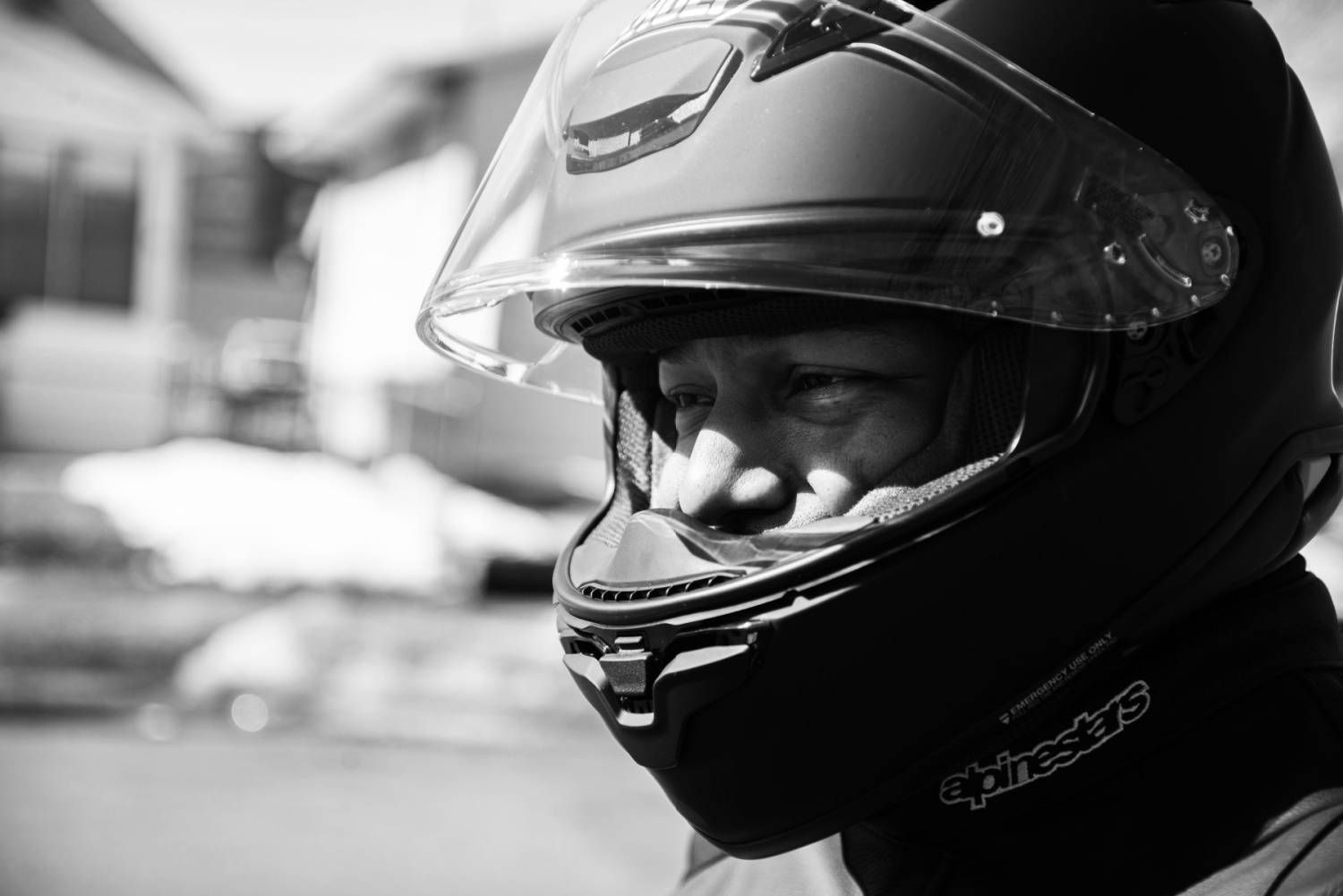
Do you think part of it is because of your style? Because when people think of motorcycling, they don't think of the Fonz - they think of how motorcycle gangs are depicted in most media. Is your blending of styles what takes the edge off?
I still wouldn't fit like the Harley biker stereotype. But I would, I think, still be eliciting more questions than fear, because it's just, you know, even without looking like you've stepped off of Sons of Anarchy, and without all those connotations, it's just street curiosity. It's a completely different vibe.
Maybe we should thank Lenny Kravitz for that because he used to wear the vest and the leather pants on stage?
Ha! Probably. The biggest comparisons I get are like Wesley Snipes in Blade, or Laurence Fishburne in The Matrix.
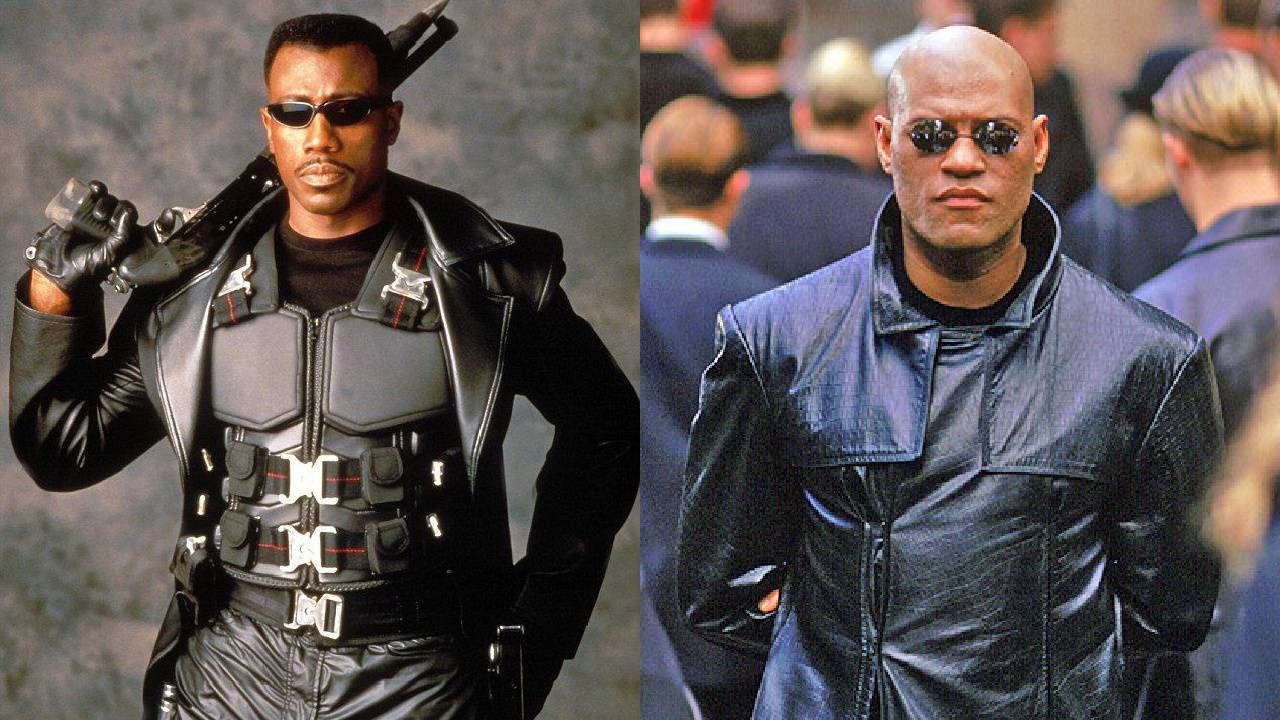
What are some truths about motorcycling (either as a BIPOC rider, or just in general) that people would be surprised to know?
First, it isn't very difficult to learn how to ride. While I had thought about riding off and on for a long time, I never learned to ride when I was younger. When I finally decided to make the jump, I took a motorcycle training course. In the space of two weeks, I attended two evenings of classroom instruction, took the state motorcycle written test then spent one weekend on a training course where I went from how to sit on the thing to passing my driving test in just two days.
Second, most people don't ride big (and expensive) Harley-Davidson motorcycles, high-performance sport bikes or big off-road adventure bikes, and have no desire to do so. For a quarter of the size and a fraction of the cost, you can still have all the fun and adventure. There is a very strong following among motorcycle enthusiasts for what are commonly referred to as standard motorcycles. Many of these motorcycles are sometimes decades old, inexpensive, easy to work on and customize, and cheap to insure. While some riders want newer, faster motorcycles and are willing to pay a premium for the latest top-of-the-line model, most just want to ride for the pure enjoyment of it and just want something they can cruise around town on and maybe take out of the city for the day on the weekend that won't break the bank.
Third, riding a motorcycle is for everyone, not just burly, bearded, mean-look dudes wearing matching vests. Television shows such as Sons of Anarchy have helped perpetuate that stereotype and yet, according to the latest industry information, 20% of all riders in the United States are women. A look back at the history of motorcycling in this country shows that there have been African American, Asian, Latino, Native and other groups riding motorcycles ever since they were invented. The average age of a motorcyclist in the U.S. has now reached 50, but there are quite a few younger people who are interested in riding, and many of them are discovering that things like the cost of owning a motorcycle and the difficulty in learning to ride are not the barriers they expected them to be.
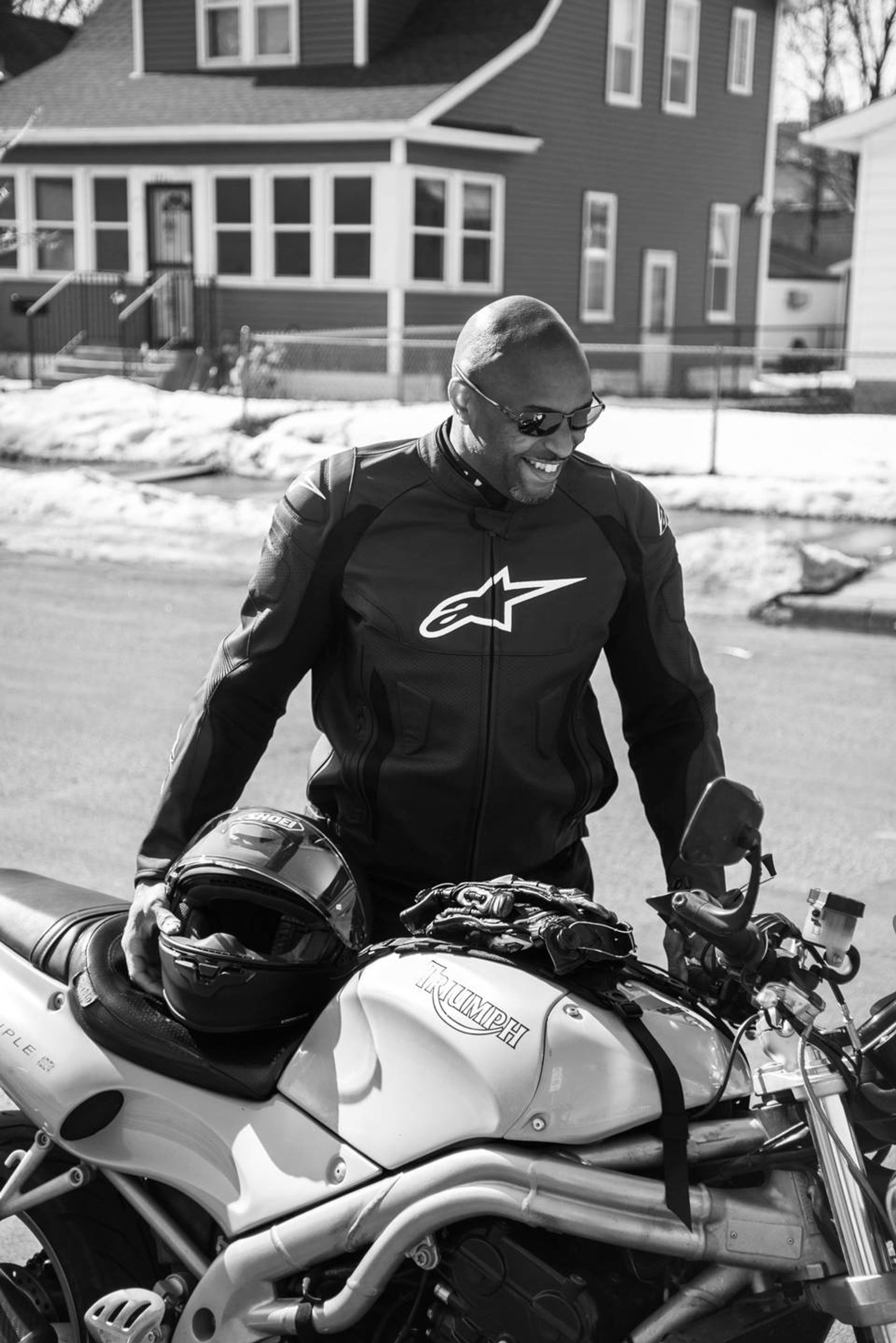
If someone wanted to get into motorcycling, particularly in the Twin Cities, and especially if they're BIPOC, what advice and insights would you give them?
I would give them the same basic new rider "take the classes / dress for safety / ride safe" advice I would give anyone. But as far as advice specific to being an ethnic minority and riding a motorcycle in an area of the country that is populated primarily by non-minorities? I would say that life on a motorcycle isn't any more or less concerning than it is operating any other kind of motor vehicle. The difference is that ethnicity doesn't seem to be the barrier to brotherhood, sisterhood and general camaraderie that it can be in other aspects of life. Regardless of what you look like or where you come from, the first thing a fellow biker will notice about you is the fact that you are on a bike. The rest of it is acknowledged, but it is secondary to that shared experience. There is an entire world out there to explore. There is no need to let fear shrink your world or limit what you feel you can achieve.
Photography by Angela Doheny
T. Aaron Cisco is a cultural essayist and author. His latest book, Rod String Nail Cloth: An Afrofuturist Mixtape reached the top five on both Amazon's Top Science Fiction Anthologies list and Amazon's Black & African American Science Fiction Top 100 list.
"Minnesota is NOT the motorsport capital of the world. There, I said it. Sorry. But that doesn’t mean we can’t lay claim to some pretty extraordinary pioneers of auto racing." Twin Cities Producer Kevin Dragseth developed something of an obsession with Formula One racing in 2020, and that led him down a rabbit hole: Did Minnesota's speed kings rule Formula One?
A surge of minority voices has responded to the police killing of George Floyd. In the weeks since Floyd uttered, “I can’t breathe,” as ex-Minneapolis Police Officer Derek Chauvin pressed down on his neck, a new collective of individuals is taking action by running for office, engaging in politics and stirring change among youth. But is the momentum a movement or a moment?
